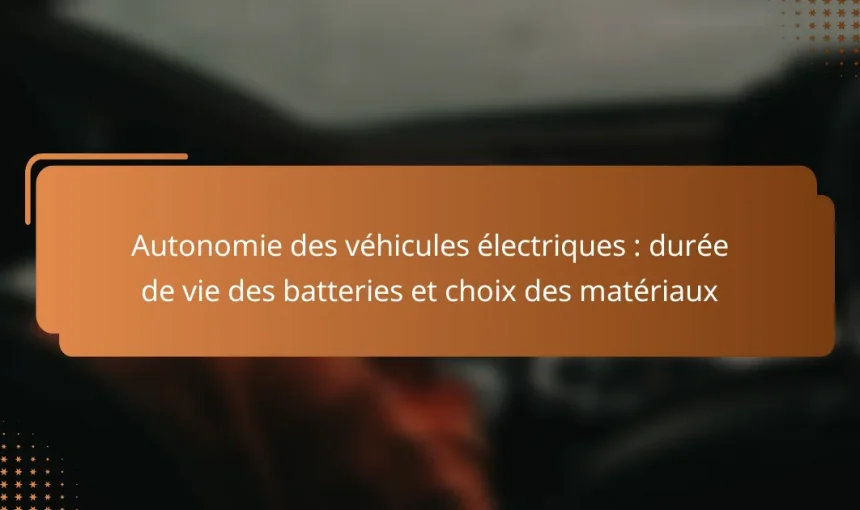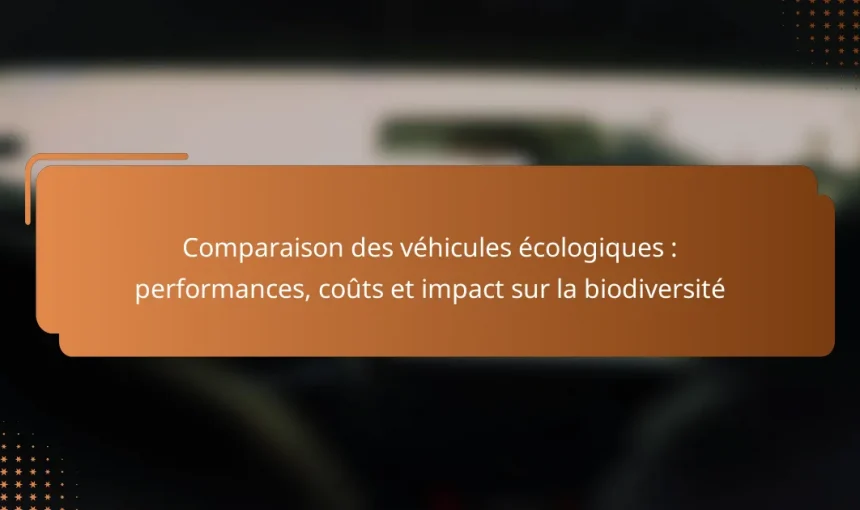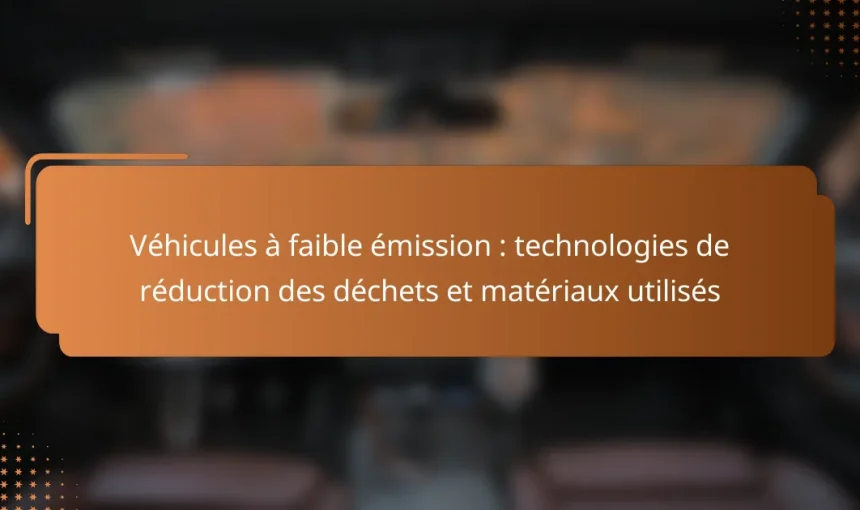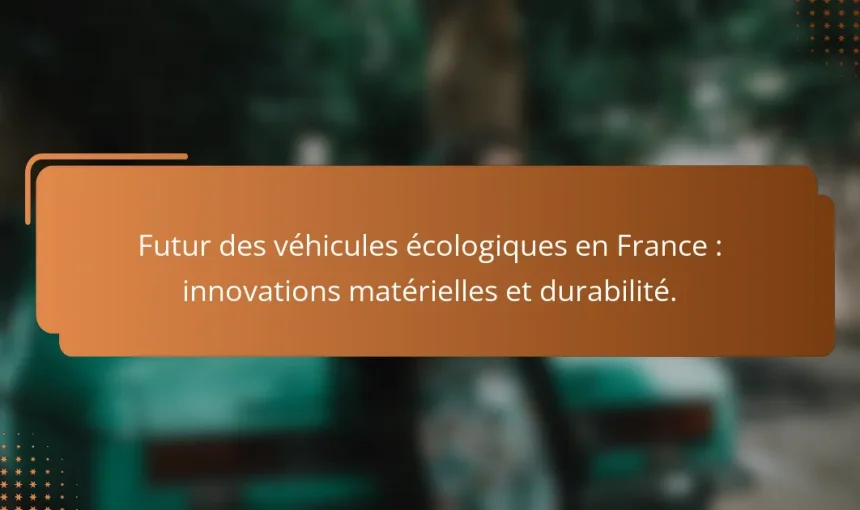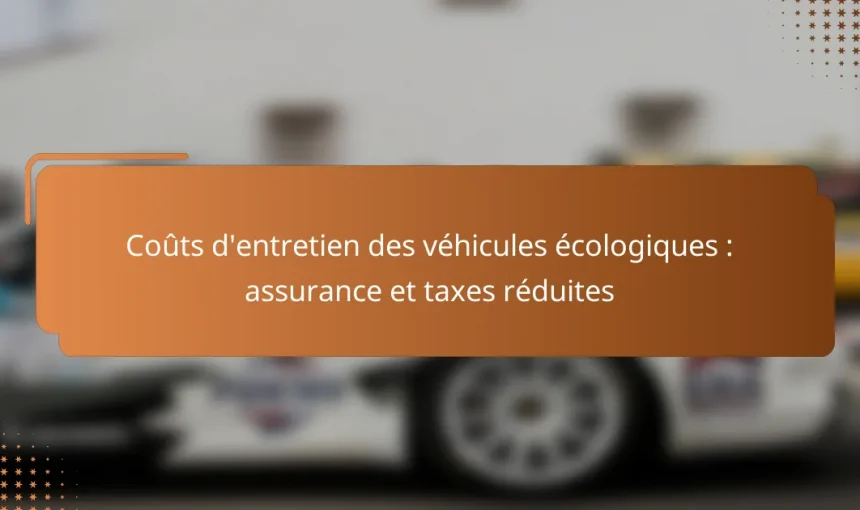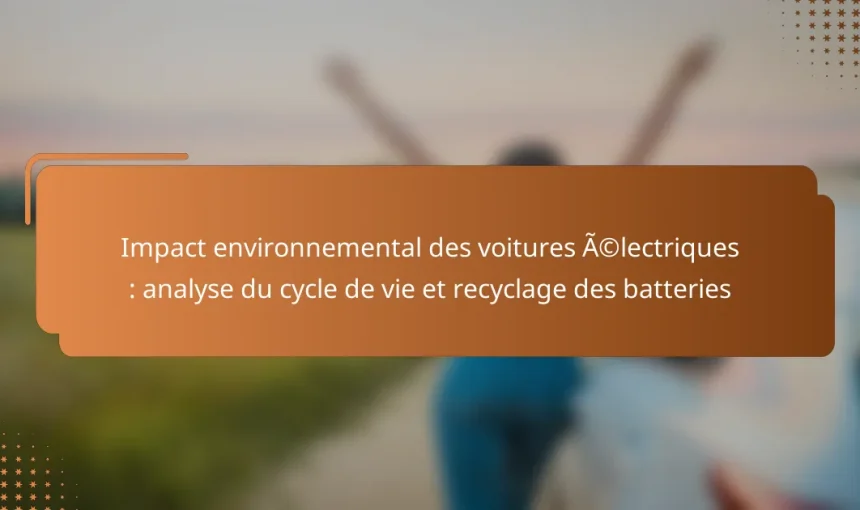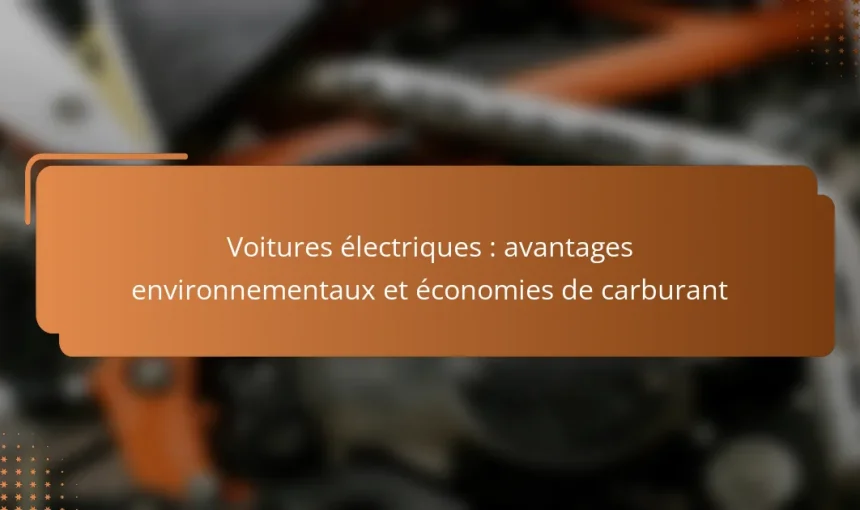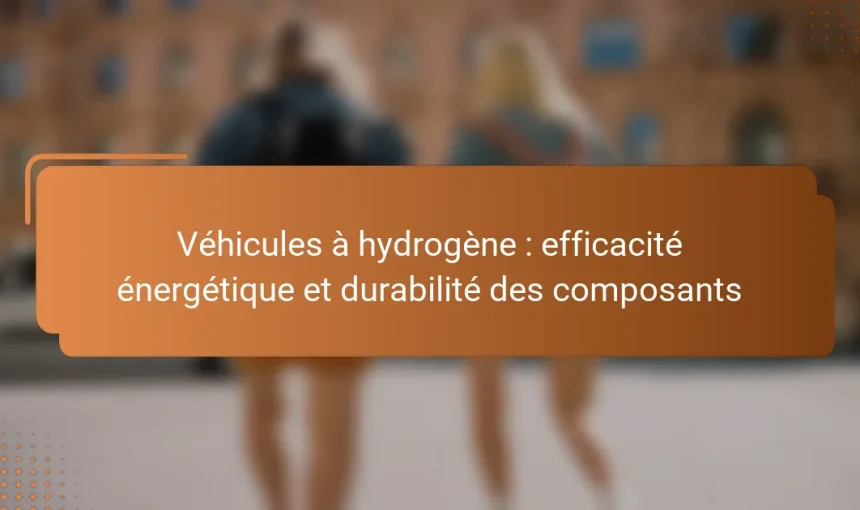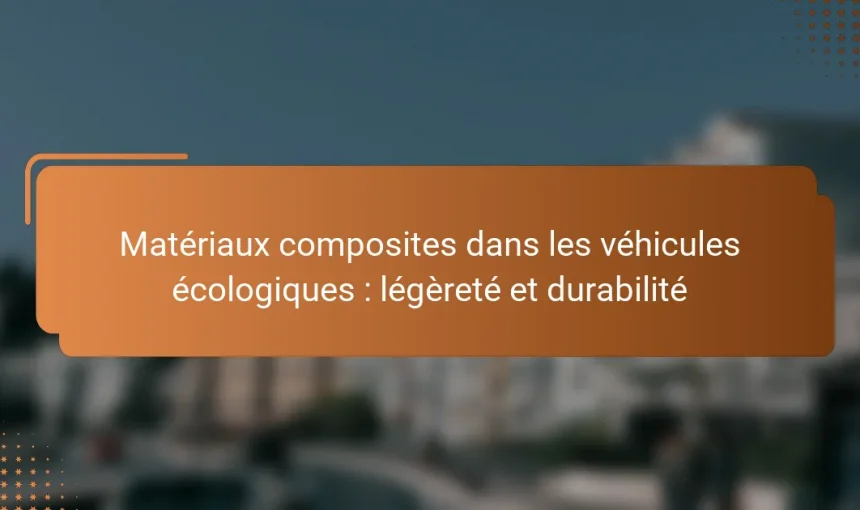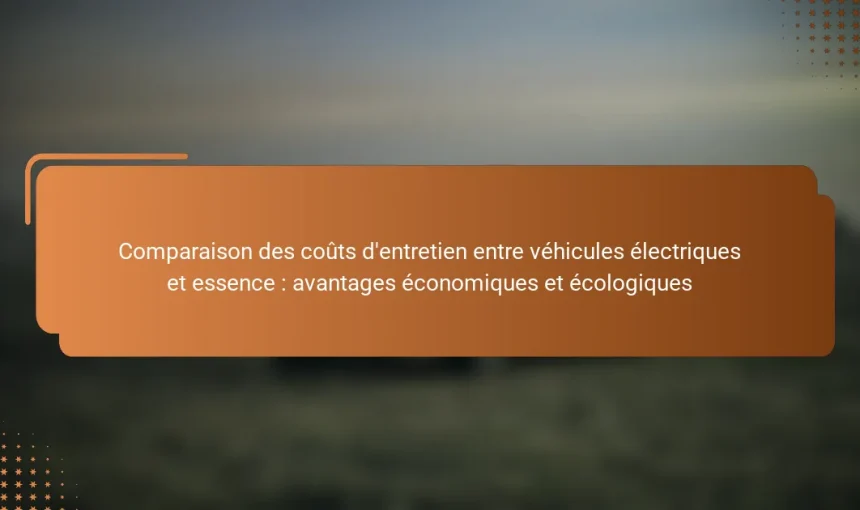The article focuses on the autonomy of electric vehicles, defined as the maximum distance a vehicle can travel on a single battery charge. Factors influencing this autonomy include battery capacity, vehicle weight, and driving conditions, with advancements allowing some models to achieve up to 800 kilometers per charge as of 2021. Additionally, it discusses the […]
The article focuses on the comparison of ecological vehicles, specifically evaluating electric, hybrid, and hydrogen models based on performance, purchase and maintenance costs, and their impact on biodiversity. It highlights that electric vehicles emit 50% less CO2 than gasoline vehicles and can significantly reduce greenhouse gas emissions by up to 70%. The discussion includes the […]
Hydrogen vehicles are automobiles that utilize hydrogen as an energy source, operating through a hydrogen fuel cell that generates electricity by reacting hydrogen with oxygen from the air. These vehicles are environmentally friendly, emitting primarily water vapor, and are gaining traction in the market, with brands like Toyota and Hyundai leading the way. Recent innovations […]
The article focuses on the future of ecological vehicles in France, highlighting technological innovations and sustainability efforts. It discusses the French government’s commitment to reducing greenhouse gas emissions, including the planned ban on gasoline and diesel vehicle sales by 2035. Key challenges such as insufficient charging infrastructure, high purchase costs, and limited social acceptance are […]
The article focuses on the maintenance costs of ecological vehicles, highlighting their generally lower expenses compared to traditional vehicles. Key factors contributing to reduced maintenance include less wear on components such as brakes and the absence of engine oil in electric vehicles, leading to annual savings of approximately 30%. Additionally, ecological vehicles often benefit from […]
Electric vehicles (EVs) significantly impact the environment by reducing greenhouse gas emissions and air pollution compared to combustion engine vehicles. However, the production of EV batteries involves the extraction of rare resources like lithium and cobalt, which can harm ecosystems. Analyzing the life cycle of electric vehicles involves examining stages such as raw material extraction, […]
Quels sont les avantages environnementaux des voitures électriques ? Les voitures électriques réduisent les émissions de gaz à effet de serre. Elles n’émettent pas de dioxyde de carbone lorsqu’elles fonctionnent. Selon une étude de l’Agence européenne pour l’environnement, les véhicules électriques peuvent réduire les émissions de CO2 jusqu’à 70 % par rapport aux voitures à […]
Hydrogen vehicles are defined as vehicles that utilize hydrogen as an energy source, employing a hydrogen fuel cell to convert hydrogen into electricity for propulsion. These vehicles primarily emit water vapor, significantly reducing greenhouse gas emissions compared to internal combustion engine vehicles, thus supporting the transition to sustainable transportation. The energy efficiency of hydrogen vehicles […]
Composite materials in eco-friendly vehicles consist of two or more distinct components, typically a polymer matrix reinforced with materials like carbon or glass fibers. These composites provide significant advantages, including weight reduction of up to 50% compared to steel, enhancing energy efficiency and durability while resisting corrosion. However, challenges such as high production costs, complex […]
The article focuses on the comparison of maintenance costs between electric vehicles (EVs) and gasoline vehicles. It highlights that EVs generally incur lower maintenance expenses due to their simpler motor design, which results in fewer repairs and no need for regular oil changes. On average, annual maintenance costs for EVs can be up to 30% […]
